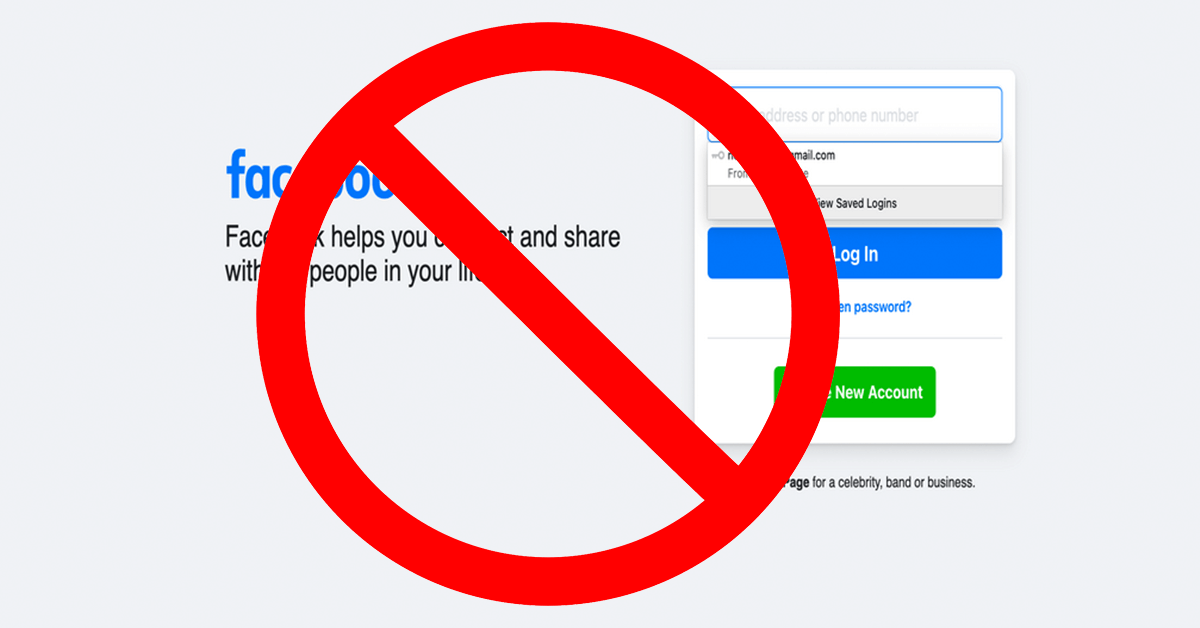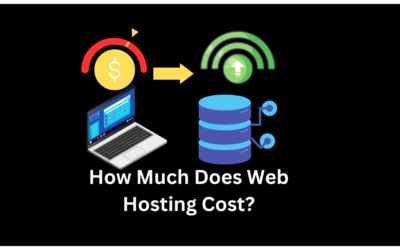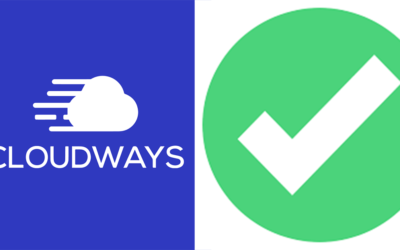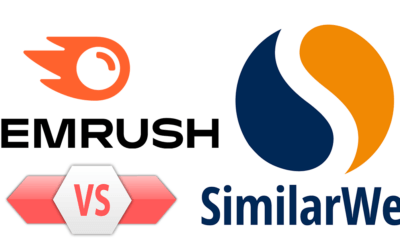Are you looking for a good alternative to Facebook? You should be confident that you’re not alone. It can seem like an intimidating challenge. If for the purpose of secret terms, data security challenges, or network laws and regulations, it is popular to find a way to avoid the social media giant in California, and more and more people try to discourage it. The demand for related networks is enormous, and a vast range of sites are ready for digital refugees on Facebook.
Privacy literacy and privacy security concerns are critical considerations in the usage of some of the other forces in social media. The Facebook news algorithms decide just what you do and wouldn’t see. This is a common criticism unique to Facebook.
Another challenge is personal ads where only access and analysis of specific user data is necessarily feasible. The list of critiques of the leader of the social network is lengthy, as you can see. It is good news that a range of other choices is present on the market, similar to Facebook. Some of them offer fewer ads. Others offer better data security, and others also provide enhanced data protection.
Top Facebook Alternatives for Privacy & Free Speech
Our team compiled a list of the best Facebook alternatives websites to help boost free speech & privacy protection and avoid any kind of online sponsorship.
1.Diaspora
The Diaspora portal is an online networking world that positions your personal data back under its own motto. The list of features of Facebook is close. Users are able to publish statuses, exchange posts and photos, and comment on posts of others. And you can verify who can view your own content, much as on Facebook.
Diaspora uses hashtags to organize items so that you can use them to identify users with common thoughts that share your passion. Diaspora can also be connected with your Facebook account, and the app has its own chat feature. Diaspora is also an open-source platform.
Decentralization is one of the core aspects of Diaspora’s identity. The framework has several different networks, known as pods. This is due to its technological history. The user information is not directly gathered and processed by the provider, but the network is dispersed by the users, with the so-called pods’ transfer of data.
You can also run your own pod, which basically acts as a server if you have strong technological skills. You should also be confident that the data is privately owned and in your own possession. The ‘open pods’ can instead be used by less technically qualified users on the network.
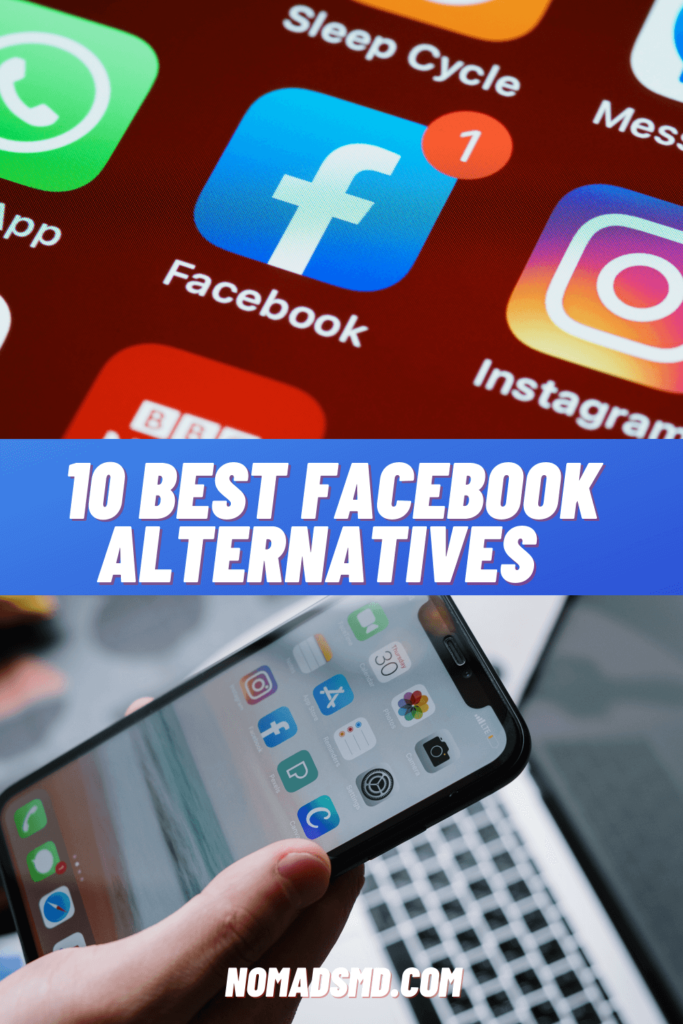
Diaspora is definitely a very slight drop in the ocean relative to Facebook, with nearly 750000 active members. Yet Diaspora’s open structure and the ownership of your own data make it a definite choice for data security consumers. Diaspora is now entirely free of advertisement.
In Facebook alternatives, Diaspora also has a range of amazing features. Diaspora is a non-profit and free-lance, open social network. The app is a private web server free of charge. Diaspora is autonomous, meaning that it is not owned by anybody. This ensures that it has no ads or interaction with companies. It does not collect the data either. You are liable for your own data and maintain control of your personal information by establishing your account.
Diaspora also lets you use whatever identification you wish so that nicknames can be seen as your profile. You can also use hashtags, sources, text types, etc. In 2010 Diaspora was established as a direct alternative to centralized giant organization Facebook. Three values form the foundation of the Diaspora: decentralized power, autonomy, and confidentiality.
In reality, this portal consists of various networks, which are known as pods, generated by Diaspora users themselves. You may either add a new pod or actually enter an open pod to join the Diaspora. No centralized server, no profit provider, or commercials are available. Best of all, consumers maintain their data possession.
Pros
- Decentralized Alternative for Facebook
- Maximum Control over Personal Information
- Secure
- No need for Identity Verification
Cons
- Need Programming Background for Pods
- Low Active Members
2.Gab
Gab is the online outlet for right-wing personalities like Infowar’s founder Alex Jones, white nationalist and anti-Semitic propaganda since its launch in 2016. That is because the content is not moderated like Twitter does — Gab markets herself as a free expression vehicle and does not attack tweets that are hateful or contain fake facts.
Gab’s online hosting services, Google’s cloud portal, Apple app store, and Go Daddy’s former domain registrar have been discontinued since its inception in 2016 for hate-talk breaches by Stripe, PayPal.
Gab, founded in 2016, is coinciding with the goal of “defending, protecting and safeguarding online freedom of expression for everyone” according to the descriptions of websites as the “free speech social network.“
This website features the Twitter blend (TWTR) and Facebook (FB), with users using no more than 300 characters to share what is counted as “gabs.” Yet Gab has almost no filtering of content users’ posting, unlike the conventional social media networks. Gab also has an online membership, a merchandise store and its own “Dissident” web browser extension that creates its own system of comments.
Pros
- Decentralized
- Free-Speech Forum
- Personalized Merchandise
- Browser Extension
- No Filtering
Cons
- Suspended Multiple Times
3.Ello
Ello’s operators have adjusted the network since its launch in 2012. They originally intended to create Ello as an ad-free substitute for Facebook and other social media. Now, the target demographic has declined marginally. The platform is mainly designed and built by artists.
With Ello, the transmission of consumer data for commercial gain is completely impractical, and that possibly will not change. The platform is funded by collaborations and sales. On the platform, artists can sell their works. There is no official information on the number of users on the Ello platform at present, but it is estimated to be about 1 million current members, although it is believed that there are very few regular members.
One of the ideals of Ello is that its customers may not have to use real names that had been the case on Facebook before and which sparked an uproar. When it launched, Ello was a closed system and was available only through a registered user invite. This has been modified since, and Ello is now open to those interested.
Website critics contend that Ello is not a genuine alternative to Facebook since many of the simple features expected to succeed are missing. Instead, Ello focuses on high-quality material that anyone can see, making it an ideal atmosphere for designers and photographers. The plain, minimalist architecture of Ello also draws users of artistic backgrounds, leaving plenty of room for the user posts.
Ello began in 2014 with a lot of stir in the U.S. when Facebook modified its naming policy, where its participants had to choose their own actual names. Ello becomes more and more popular with the world as a “social media network killing Facebook,” not selling publicity information and data to third parties and push advertisements down their throat.
Ello is growing rapidly again, in particular with the campaign #deletefacebook growing quickly. There is a social network where people like to feel protected and comfortable, and it doesn’t appear on Facebook at the time. That is why these Facebook refugees swarm sites such as Ello. Ello is now home to creators and creatives, but it has the platform to take on all manner of people.
Ello promotes itself as an ad-free substitute to Facebook and is pledging never to share information regarding its customers. In 2014, Facebook launched its real names policy. However, it was not met by the mainstream. Ello is an appealing choice for designers, musicians, and other artistic individuals due to its minimalist style and its emphasis on content. However, the chat function is private for users, and certain other handy Facebook functions are not included.
Pros
- No Advertising
- No Need for Actual Name
- No Connection to Third Parties
- Minimalist Style
Cons
- Limited Active Users
- Basic Functions Only
4.Vero
The social network Vero is an interesting choice for Facebook and was unveiled in 2015, but has only lately seen a massive emergence of young users. CEO Ayman Harari expanded its reach of more than 3 million users in billions of euros at the beginning of March 2018, following the niche app Vero used to have about 200,000 subscribers.
The new offer of free lifetime subscription won over not only successful influencer campaigns but played an important part. The iOS and Android programs will only be possible in the future with a premium monthly subscription. Initially, however, the deal was extended until further notification.
However, the annual fee is intended as the key revenue stream to support the expanding business Vero Research facilities. The idea is to keep the website free of advertisements in the long term and not to exchange information with consumers to generate a profit. The organization also earns income by paying trade costs for the sale of merchandise by Vero and introducing the “buy now” button.
While Vero is comparable to rivals like Instagram and Facebook in many ways (portfolio, layout, feed, social feed), the platform provides a range of special interesting sales points. The notifications in the timeline do not appear in a sequential sequence but in an algorithm. There can also be four types of connections: “followers,” “friends,” “friends,” and “close friends.”
Contacts are split into four. These groups will then be chosen as the focus group if a post is written such that only the requested audience is alerted. A private telephone number must be entered to establish and validate a Vero account.
To someone that enjoys something sufficient to share and needs the power to do so, Vero positions itself as a social network. Vero is a social network focused on subscriptions. No ads are shown, and no data is collected. Facebook has a radically different paradigm in that Facebook requires user data to make money off them.
Vero’s key sales points are a premium service that is free of ads and doesn’t sort the timeline with software. Vero has been around since 2015, but lately has really begun to sail, with a small free membership deal for the rest of life from just 200,000 to over 3 million people.
Pros
- No Algorithm to Crowd Your Feed
- No Data Exchange to Third-Parties
- Ad-Free Experience
Cons
- Need Verified Telephone Number
- Fee-Based
5.MeWe
If you get out of control, MeWe is the most suitable option on Facebook at present. While only some of its reported 8 million users are involved, they are at least sufficient to help many groups and manage the app. It has many functionalities, such as community, personal chat, tagging, content licenses, and even a few other extras such as cloud services and user profiles for various communities, that you expect from Facebook.
Certain functionalities include membership costs such as additional cloud storage, encrypted chat, live voicing, video conferencing, and sites. Most of the time, this is how MeWe earns profit because it is ad-free, and it does not track or sell your knowledge.
MeWe maintains the feed purely undiluted and linear and does not mess with your posts as part of the general policy of the website. They have a small group of editors to detect and delete hate speech and other harmful content, but usually, the site does not take drastic measures to handle problematic articles.
The platform itself does not blow you away, but when you are from Facebook, it feels full and has no high level of complexity. Along with user titles, the interface allows it between top competitiveness on Facebook, but it isn’t open source or decentralized, and will uninstall any that don’t have the confidence of a single organization.
MeWe has put confidentiality at the forefront since its arrival in 2014. “The Next-Gen Social Network,” says this is the platform. How is it different from other rivals, such as Facebook? Now, MeWe has no publicity of any kind. Your feed has nothing more than material.
MeWe doesn’t sell your personal information or mine records. The app is focused on pay-as-you-go operations. You can also spend a few dollars on a personalized emoji, or you can buy extra room on your secret chat account. MeWe recently unveiled a premium-level package for a few months. The group soon began delivering services at the corporate level with a variety of paying services for enterprise and partnership.
The central MeWe service is absolutely free for all, even with all those additional transactions. You can make blogs, exchange content, and more with an account. A safe chat system is also available. MeWe is not in any way controlling your feed. You still have the power over what you see.
The social networking scene is fairly fresh for MeWe. MeWe is a Facebook replica but has improved data protection through the hashtag #Not4Sale. The greatest user issue currently appears to be the absence of other members with many the same functionality as Facebook.
Pros
- No Ads
- No Data Selling
- Higher Data Security
- Private Chats
Cons
- Limited Functions
- Some Functions Are Paid
6.Minds
Minds is a community-based open-source, privacy-based alternative to Facebook, which has attracted at least 1.25 million users (2018 on, up-to-date usage figures are not available). It also accepts “Ethereum” tokens which recognize the production of content and operates a digital economy within the network, and uses a decentralized management mechanism in which randomly selected users can decide on content constraints. However, other platforms do not accept a comparable node-based system. The network itself is not decentralized.
Minds stack very favorably against Facebook with respect to functionality. You can set up communities, receive messages, write, comment, browse a sequential newsfeed and use a social networking site to do most of the simple things you anticipate. The interface is intuitive to new users, particularly from Facebook.
Minds (and no tracking) are not used for third-party advertisements, but Minds Tokens were allowed to “increase” the content in the news and sidebars of the customer. Registering for the ‘Plus’ or ‘Pro’ edition would turn off these advertisements and provide the developers who choose to use the app with access to some unique characteristics and resources.
Minds is a type of Facebook replica anti-establishment. The network has no suppression of free expression. The “migrate from Facebook” functionality can be used for new users. Savvy members can also create revenue by having monthly assistance for commercialized content and ad sharing through their social networking.
Bill Ottman, John Ottman, and Mark Harding developed Minds as an open-source social media network in 2015. The site is a social networking platform operated by the community, which rewards the users for their online activities. They do that by paying crypto users and by giving users some insight into the content they have uploaded.
Each consumer is tracked by Minds on a regular and group basis. The amount a customer earns is calculated by the ratio in the network, and the amount of the daily recompense pool is determined. The social network of Minds is focused on equality, accountability, the security of privacy, and democracy.
Pros
- No Third-Party Ads
- Community-Owned Platforms
- Compatible with Ethereum
Cons
- Complex at Times
- Minimal Functions
- Limited Users
7.Mastodon
Mastodon, however, wins the spot among the top Facebook equivalents due to its relative population, successful decentralization, user-friendly design, and group moderating mechanisms, even though it is more comparable to Twitter in terms of feel and features. It is a part of a broader service bundle known as ‘Fediverse,’ which means that it uses open-source tools to host and monitor servers.
You will have to select a server to host a site so that you can view information on all other Mastodon ‘instances’ as well as on other social media platforms, including Friendica or PixelFed from ActivityPub. You will be able to set up a profile on your device.
Mastodon is non-advertising, the feed is fully sequential and unordered, and you are not processed by the device. However, you do have to trust the person who hosts your account data if you do not want to set up your very own case.
The host server often sets its rules and the type of content that is allowed. There are occasions where something can be uploaded, but only the occasions of stability and moderation standards that conform with the Mastodon Server Covenant are listed on the main blog.
Twitter users may have a lot better time than Facebook users to adapt to Mastodon, so it’s nice to remain tuned to individuals and communities until you have a few missed features. In essence, Mastodon definitely does not have it if Twitter does not.
Mastodon began in 2017 and had a huge effect on the scene of the social network. Mastodon is a free networking site, and it is open-source. As it started, it was released as a Twitter rival for open source, but when people quit Facebook, it is used the same way Facebook does, which makes it a good choice of Facebook. Ultimately, Mastodon is an open solution to other commercial social network networks, ensuring that it is not owned or monopolized by any business.
Pros
- Plenty of Features
- No Data Selling
- Decentralized
- Moderated for Content
Cons
- Complex Group Rules
- Setting Up Server May be Hard
8.Sociall
As a blockchain-based social network, Sociall actually operates in open beta, which applies to the SCL-cryptocurrency and likely to its potential data storage and hosting. Currently, the Facebook migration tool and its reasonably stable app have some simple social features which can import data and newsfeed from your profile.
Sociall will not advertise, log or sell your details to third parties and it gives you absolute access, including the right to erase your data if you like. The team also strives to moderate the group rather than top-down control content.
Features such as communities, activities, and private messages are lacking though they could be intended for future growth, and Sociall practically is just newsfeed software. Progress reports are uncommon, and people will semi-regularly ask, “Is Sociall dead?” They normally check-in and ensure that they are still going, though, and if new software is introduced and beta is left, they can improve marketing.
Sociall is a new forum for privacy-oriented users that looks very exciting. It has all the same functionality as most networks. You can generate blogs, monitor other posts, and find new material.
Yet Sociall’s approach to data security and privacy processing is peculiar. The network has strict confidentiality features that hold the messages privately. In addition, it has the best encryption, which avoids the indexing of your profile on search engines.
Sociall is a global network, which thus does not belong to a single party. By introducing blockchain technologies, the platform is moving it a step further. There is no place to store your post content. This makes access to and corruption of the data more difficult for hackers. It guarantees much greater protections for Sociall.
Sociall strives to be completely autonomous in terms of user-generated content. Sociall creators do not want to search or curate content consumers. Users should instead moderate the platform and delete spam or messages that contravene the group guidelines.
Pros
- High Level of Data Security
- Encrypted Profiles
- Minimum Visibility on Search Engines
Cons
- Merely News Feed Platform
- Limited Features
- No Marketing
9.Friendica
Friendica is another decentralized system that advocates for greater equality for consumers. This is a far more dynamic network than Facebook. However, developers are committed to making it easier in the future for non-technical users to access. The goal is to create a WordPress-like installation mechanism on websites.
It is not a single entity that owns Friendica. Actually, the GitHub software is open source. Volunteers undertake the ongoing production. But Friendica hasn’t been stopped by this in the social media sector.
You need to update the app on a compatible device when you build a Friendica account. In turn, you build your own Friendica server and then connect to other servers. It’s a perfect way for people to communicate and view posts while ignoring the rest of the traffic.
Other systems allow users to combine contacts. The website can also be used to post on other networks. Due to its open-source nature, Friendica can only become more versatile as it grows.
Mike Macgirvin, a longtime member of the open-source community, and a computer developer who established Internet infrastructure for companies such as America Online and Netscape Communications, is coordinating the Friendica project.
At the start of May 2010, Macgirvin was concerned with “the large-scale centralization of privacy in the hands of one single U.S. company, which saw businesses collapsing after the dot-com crisis, and that its consumer databases were sold for pennies in the dollar.”
Pros
- Open-Source Platform
- Integrate Contacts
- Multi-Platform Posts
Cons
- Low Active Users
- Minimal Growth
10.W.T. Social
W.T. Social is a social media platform targeted at being Facebook’s entire epitome. The slogan says it all: W.T. Social is a social network that is non-toxic. Wikipedia affiliate Jimmy Wales introduced the network. Microblogging and functionality of Wikipedia’s contribution to W.T. Social are prominent. More specifically, all the collection of data available on Facebook is absent.
They do not collect and sell your data at W.T. Social. Not just that, but sponsors don’t control what is or what you see on the platform. Even architectures are not doing it for your feed. Members have full user interface power.
The network is also firmly opposed to deceptive content. Contributors can quickly edit the falsehood material. W.T. Social also bans users who breach the site’s terms of service. It is fair and truthful and aims at linking people; it is clear and transparent.
Pros
- No Data Collection
- No Deceptive Content
- Users Have Full Control
Cons
- Low Active Users
- Simplistic Layout
What Do We Have to Say?
The reigning Champion of the social network industry has been and remains Facebook. Certainly, in some parts of the world, such as China or Russia, the popularity of common Facebook alternatives with similar market share is much more equivalent. Yet Facebook is, for the most part, the global pioneer in online social networking.We can makes friends in a new place easily with social media, but we must never forget our civil rights and privacy.
You have no other alternative but to embrace the privacy and data security setup and to live with the system while using the app. If you don’t want to do so, you must find a suitable option for Facebook – either persuade all your colleagues, relatives, friends, and interactions to join you or brace yourself for a substantial decrease in the online communication cycle.
When you pass through the Facebook replacements, the greatest challenge you face is how uselessly abandoned they all appear to be. This is why a party is likely to be the right transitional strategy. If you start some sort of group or gathering, consider having online meetings with something like MeWe or Minds. If you simply need a way to remain up to a handful, almost all of the above alternatives would work for you.

